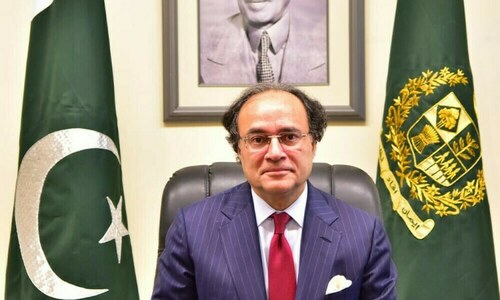Pakistan Aims for a Digital Economy Transition
Federal Minister for Finance and Revenue, Senator Muhammad Aurangzeb, presided over a significant meeting at the Finance Division on Tuesday. The core agenda was to explore multiple strategies for accelerating Pakistan’s move toward a digital economy with reduced cash dependency.
The session gathered leading figures from Pakistan’s financial structure, including representatives from commercial banks, development finance institutions (DFIs), regulatory bodies, and investment specialists. These experts form the core of a committee established by the minister, tasked with developing recommendations to bolster Pakistan’s digital transition.
Participants thoroughly explored various vital proposals designed to increase the acceptance of digital payment methods nationwide. A general agreement was reached on measures to broaden the reach of digital financial services, promote the utilization of digital transactions, and decrease the reliance on cash in daily economic exchanges. A key point of consensus was the necessity of ensuring that digital payment solutions are easily accessible across diverse sectors, including retail, services, and transactions within the public sector. The attendees voiced support for steps that would facilitate extensive interoperability, specifically leveraging the Raast instant payment system to give consumers greater choice in selecting digital payment platforms.
It was additionally agreed that establishing a fairer balance between cash and digital transactions is crucial. Realigning incentive structures to make digital payments more appealing and economically viable for both consumers and businesses is essential. Emphasis was placed on enhancing cost structures linked to digital transaction infrastructure, such as merchant onboarding and service delivery, to broaden outreach, especially to small merchants and underserved populations.
Finance Minister Senator Muhammad Aurangzeb expressed his approval of the Committee’s suggestions and emphasised that digitalisation is vital to Pakistan’s plan for economic modernisation. He stated that broadening the scope of digital payments would significantly improve financial clarity, encourage broader inclusion, and enhance the effectiveness of operations in both the public and private sectors.
The Minister highlighted that the transition to a less cash-dependent economy is not merely a policy goal but a practical necessity for ensuring long-term fiscal stability, boosting competitiveness, and fostering inclusive growth. He commented, “Digitalisation constitutes the bedrock of a modern financial system. We must proceed with urgency and coordinated efforts to create an inclusive, interoperable payment ecosystem that is easy to use for all Pakistani citizens.”
He also emphasised the significance of using technology to simplify financial access for both individuals and businesses while ensuring policy alignment among all relevant stakeholders.
The meeting concluded with the finance minister instructing the committee to create a comprehensive, time-bound roadmap for putting these initiatives into action. This plan is to be presented to the Finance Division for further action and policy consideration.



Comments (0)
No comments yet. Be the first to comment!
Leave a Comment